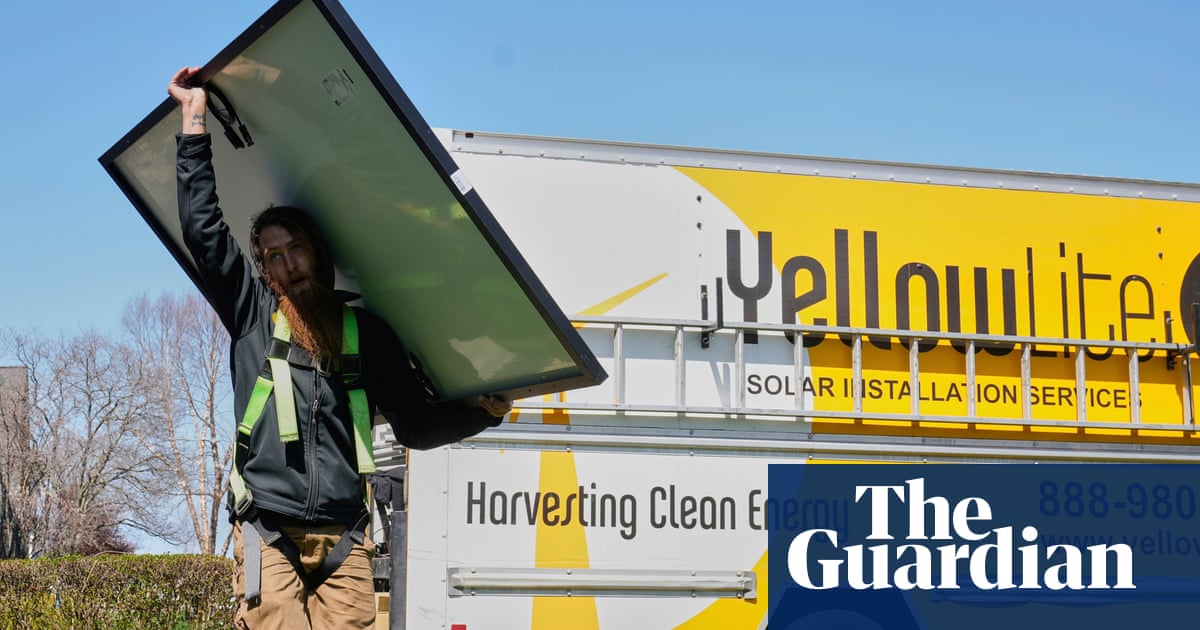- cross-posted to:
- worldnews@lemmy.ml
- us_news@lemmygrad.ml
- usa@midwest.social
- usa@lemmy.ml
- cross-posted to:
- worldnews@lemmy.ml
- us_news@lemmygrad.ml
- usa@midwest.social
- usa@lemmy.ml
The US commerce department has announced the new tariffs, targeting companies in Cambodia, Thailand, Malaysia and Vietnam, after an investigation begun a year ago when American manufacturers of solar panels accused Chinese companies of flooding the market with subsidised, cheap goods.
Products from Cambodia would face the highest tariffs, of 3,521%, because its companies did not cooperate with the US investigation, while products made in Malaysia by the Chinese manufacturer Jinko Solar face duties of just over 41%; rival Trina Solar’s products from Thailand will incur tariffs of 375%.
However, critics, including the Solar Energy Industries Association trade group, have said tariffs would harm US solar producers because they would raise prices on the imported cells that are assembled into panels at American factories.
deleted by creator
Cheap solar is a strategic advantage in every way. Like let’s say China was subsidizing their solar panels. When we buy them, they’re losing money and we get cheap energy. That’s a win - win.
That’s true, they are subsidizing your country. The problem at hand is that they are also destroying your industry, which is very bad in long term. When others industry is gone , they have a monopoly.The same
suppliesapplies to car industry, specifically EVs.The problem at hand is that they are also destroying your industry, which is very bad in long term
That ship sailed DECADES ago when US corporations realized how profitable outsourcing is.
No amount of tariffs are going to make the world champions of profiteering base production in a country that so much as PRETENDS to treat workers humanely.
Trying to put that toothpaste back into the tube is only going to hurt the transition from fossil fuel powered energy when they inevitably pass the expense all the way down to the taxpayers.
That’s certainly a fair point. However, being 100% dependent on an external monopoly is strategically and mid-term problematic. Once they acquire a monopoly status, they can raise prices, stop innovating and have a leverage on you - classic monopoly cons.
being 100% dependent on an external monopoly is strategically and mid-term problematic.
True, but the fact of the matter is that they already have a natural monopoly on some of the rare minerals that both their and the US industry depends on.
Just slapping a tariff on every part of the process including materials like this is inevitably ruinous to the American producers of solar energy unless they pass the cost down, which they inevitably will.
There’s literally no upside (other than for fossil fuel interests and the politicians in bed with them, of course) and mountains of downside to this moronic sledgehammer approach to financial diplomacy.
Yes, but the power still works and you still have cheaper load to allow you to subsidise development of a local market later, should that happen.
So, it is a risk, but not a substantial one. For something that stops working after a disagreement, say like US military equipment, then you’re screwed. Solar keeps working.
The case was brought last year by the Korean company Hanwha Qcells, Arizona-based First Solar and several smaller solar panel makers in the US. They accused Chinese companies with factories in Malaysia, Cambodia, Thailand and Vietnam of shipping panels priced below their cost of production, owing to unfair state subsidies.
However, critics, including the Solar Energy Industries Association trade group, have said tariffs would harm US solar producers because they would raise prices on the imported cells that are assembled into panels at American factories.
It’s almost like the tariffs weren’t really well thought through. 🤔







